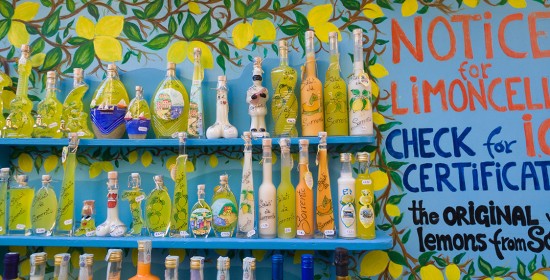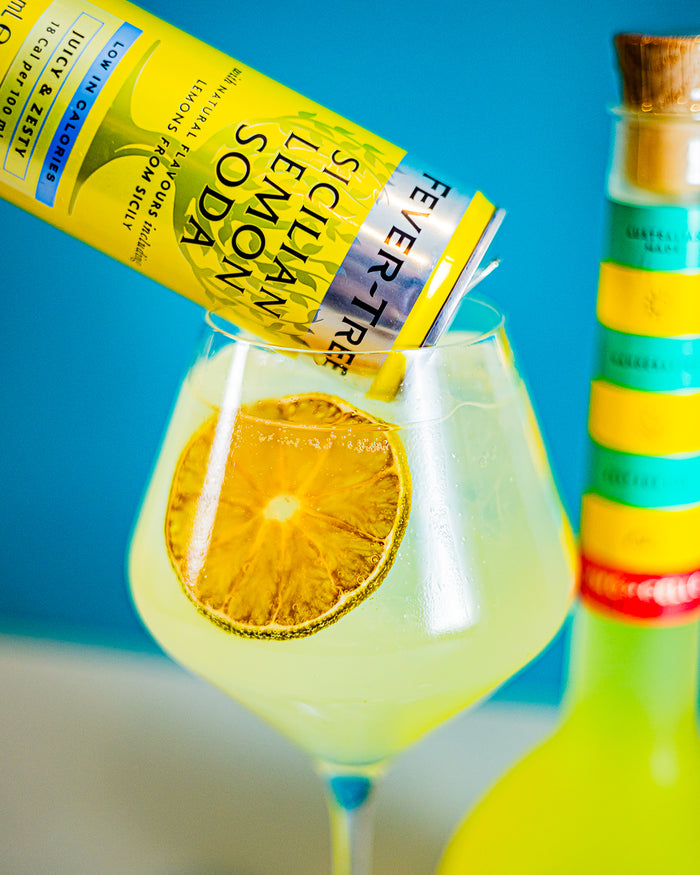

· By Nando Focareta
The Cultural Significance of Limoncello in Italian Tradition
Limoncello, the bright yellow, intensely lemon- flavoured liqueur, is more than just a delightful drink in Italy; it is a symbol of hospitality, tradition, and the Italian way of life. Originating from the sun-kissed coasts of Sorrento, the Amalfi Coast, and the island of Capri, Limoncello has carved out a significant place in Italian culture. This blog explores the rich cultural significance of Limoncello, delving into its historical roots, its role in social rituals, and its enduring appeal.
A Drink Steeped in History and Mystery
The history of Limoncello is as vibrant and intriguing as the drink itself. While its precise origins are shrouded in mystery, legends from Sorrento, Amalfi, and Capri all claim the drink as their own. In Capri, it is believed that the origins of Limoncello date back to the early 20th century, linked to the family of Massimo Canale, who registered the first trademark "Limoncello" in 1988. Sorrento and Amalfi, on the other hand, boast of traditions that involve serving Limoncello to illustrious guests, a practice that has been passed down through generations.
Regardless of its true birthplace, what remains clear is that Limoncello is deeply rooted in the agrarian traditions of the Italian coast. The liqueur is crafted from the zest of lemons grown in these regions, where the unique climate and soil conditions produce lemons with unparalleled flavour and aroma. This connection to the land and the meticulous process of hand-peeling and infusing the lemon zest have made Limoncello a cherished part of Italian heritage.
Limoncello as a Symbol of Hospitality
In Italy, hospitality is a cornerstone of social interaction, and Limoncello plays a pivotal role in this cultural practice. It is customary for Italians to offer Limoncello to guests as a gesture of welcome and friendship. Whether served as an aperitif to start a meal or as a digestif to conclude it, Limoncello embodies the warmth and generosity of Italian hospitality.
This tradition of sharing Limoncello extends beyond the home to restaurants and cafes across Italy. In many establishments, a complimentary glass of Limoncello is offered to diners at the end of a meal, symbolizing the host's gratitude and the desire to leave guests with a lasting impression of their visit. This practice not only enhances the dining experience but also reinforces the social bonds between hosts and guests.
A Social Ritual and Culinary Delight
Limoncello is not just a drink; it is a social ritual that brings people together. In the coastal regions of Italy, it is common to see groups of friends and family gathering on warm summer evenings to share a bottle of Limoncello. This ritual of communal drinking fosters a sense of camaraderie and celebration, reflecting the Italian ethos of "la dolce vita" or "the sweet life."
The versatility of Limoncello also makes it a culinary delight. Its vibrant citrus flavour and refreshing qualities have inspired a variety of uses beyond the traditional glass. It is often used as an ingredient in cocktails, adding a zesty kick to classic recipes. In the kitchen, Limoncello is incorporated into desserts such as sorbets, cakes, and gelatos, infusing them with a burst of lemony goodness. This adaptability has helped Limoncello maintain its popularity across generations, evolving with changing tastes while preserving its cultural essence.
The Ritual of Crafting Limoncello
The process of making Limoncello is itself a cultural tradition, often passed down through families. The recipe is simple yet requires patience and precision. It involves steeping lemon zest in grain alcohol for several days, then mixing it with simple syrup and allowing it to mature. The quality of the lemons is crucial, and traditional recipes call for lemons from the Sorrento or Amalfi regions, known for their thick, aromatic peels.
Many Italian families have their own variations of the Limoncello recipe, each adding a personal touch to the beloved liqueur. This tradition of home-brewing Limoncello not only preserves the artisanal methods of the past but also strengthens family bonds as the process is often a collaborative effort, bringing generations together in the kitchen.
Limoncello Today: A Global Ambassador of Italian Culture
While Limoncello's roots are firmly planted in Italy, its appeal has spread worldwide. It is now enjoyed by people around the globe, serving as an ambassador of Italian culture. The export of Limoncello has introduced international audiences to the flavours and traditions of Italy, fostering a greater appreciation for the country's culinary heritage.
In the modern world, Limoncello continues to evolve. Artisanal producers experiment with new flavours and variations, while bars and restaurants create innovative cocktails featuring the iconic liqueur. Despite these modern adaptations, the essence of Limoncello remains unchanged—a celebration of the simple pleasures of life, the beauty of tradition, and the warmth of Italian hospitality.
Conclusion
Limoncello is more than just a lemon- flavoured liqueur; it is a cultural icon that encapsulates the spirit of Italy. From its mysterious origins and meticulous crafting process to its role in social rituals and culinary innovations, Limoncello holds a special place in Italian tradition. Whether enjoyed as a post-meal digestif, a refreshing cocktail ingredient, or a homemade family recipe, Limoncello continues to bring people together, celebrating the richness of Italian culture and the joy of shared moments.










